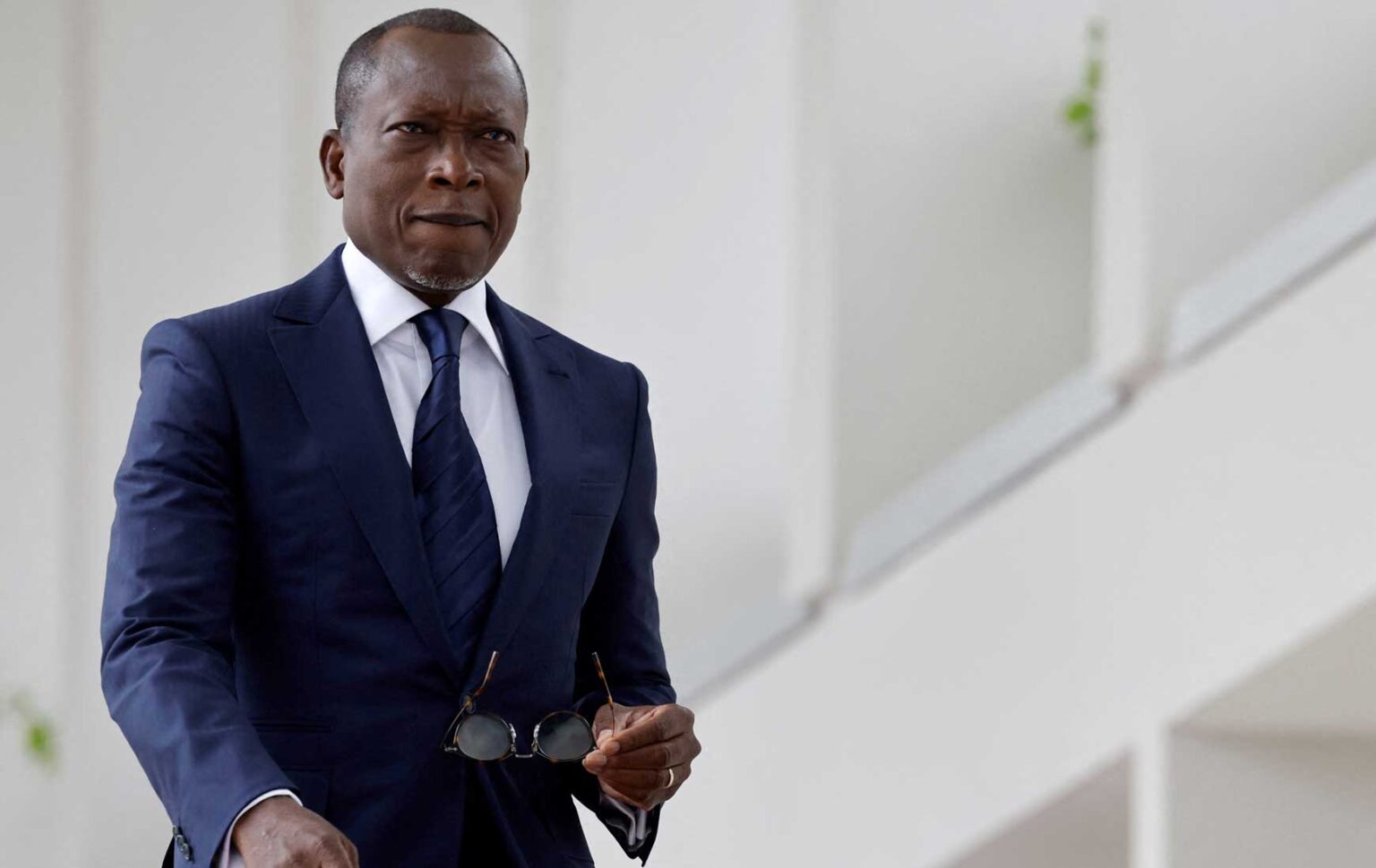A 55-year-old man, identified only as PDG, switches off his laptop in frustration after getting a phone call from one of his government “connections”. The bad news made him swear by his Voodoo “ancestors” that Benin’s President Patrice Talon must not stay in power even by one second when his rule ends in 2026.
It was unclear why the man was angry, but Africa in Fact was reliably informed that PDG – who did not run or own any company – was a middleman in public procurement, one of the most corrupt sectors of Benin, the tiny West African nation, which ranked 70th (43 points over 100) on the Transparency International 2023 Corruption Perceptions Index (CPI).
“Public procurement is a nest of corruption around the world. In Benin, the sector is suffering from political interference,” Jean-Baptiste Elias, president of Benin’s Front of National Organisations Against Corruption (FONAC), told Africa in Fact in the economic capital, Cotonou.
“Politicians give instructions to public procurement agents to award X tender to X because he or she is one of the important elements for us on the political scene, award this contract to this company and do this and do that.”
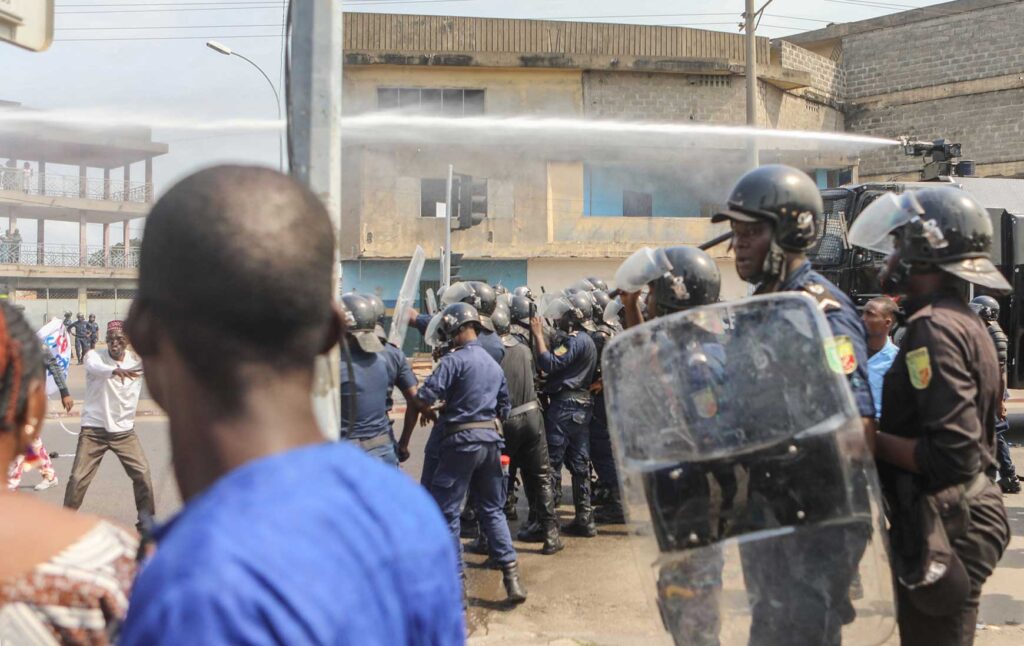
Poorva Karkare, policy officer at the European Centre for Development Policy Management (ECDPM), seemed to echo Elias’ sentiments, saying: “Tender processes are riddled with corruption everywhere. In most developing countries, leaders want to win the next elections, and there is very likely pressure to award tenders to those who are allied with, linked to, or close to them in return for their support in elections.
“Even in developed countries like the US, there are more subtle forms of corruption through the ‘revolving door’ where legislators or regulators change roles to become lobbyists or employees in private firms.”
Elias claims that some state officials established companies on behalf of their fathers, brothers and wives or uncles to award themselves public tenders. “Such practice falls within the framework of corruption, and it will not stop until we get to appoint virtuous leaders at all levels of government, from the top to the bottom, including at ministerial level, municipal and regional level, as well as in state-run institutions.”
Talon, who came to power in 2016, has repeatedly said that fighting corruption is one of his main priorities. It is believed that his administration undertook a few reforms in this direction, and these included eradicating contact with cash in favour of digital payments and creating a new anti-corruption organ, the Unit for Analysing and Processing Complaints and Denunciations, which is tasked with receiving complaints against public officials and carries out investigations with a view to prosecution. In 2018, the Talon administration also established the Court for the Repression of Economic Crimes and Terrorism (CRIET), a legal instrument for the fight against corruption.
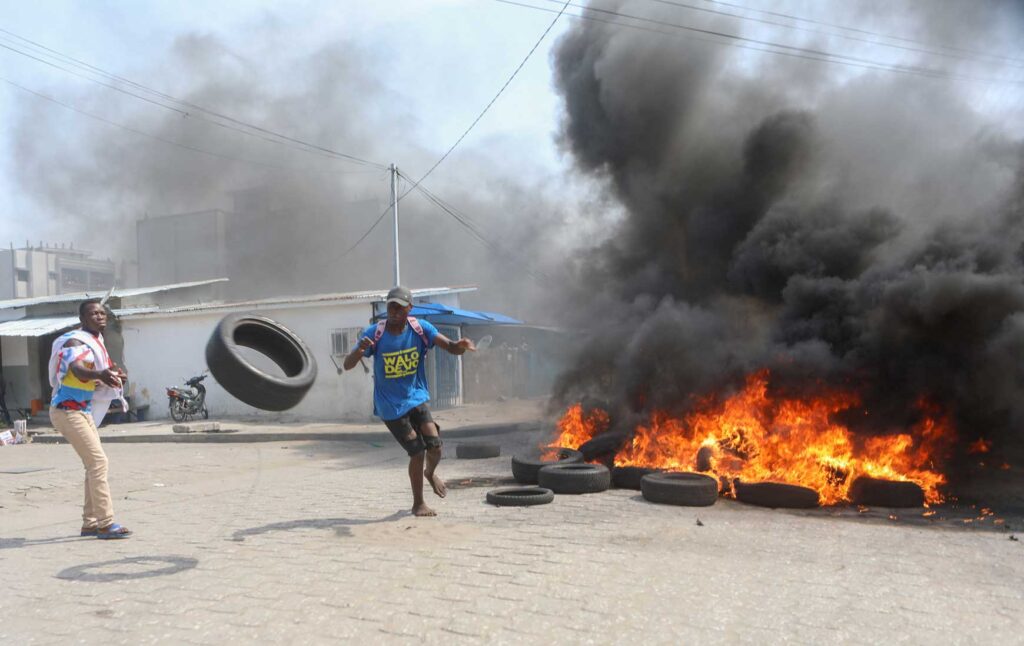
A recent report released in December 2023 by Afrobarometer, the survey of which was conducted between 2021 and 2023, revealed that Benin recorded a sharp drop (13%) in the perception of worsening corruption in Africa. The report said Benin posted satisfying scores in all sectors, and that many people said they were pleased by the government’s efforts to fight corruption.
However, Elias disputes the Afrobarometer report. “In 2014, Benin scored 39 out of 100 in the Transparency International Corruption Perceptions Index, 37 in 2015, 36 in 2016, 39 in 2017, 40 in 2018, 41 in 2019 and 2020, 42 in 2021, and 43 in 2022 and 2023. These are the scores of corruption in the past 10 years.
“The first observation is that Benin did not manage to score an average figure, which is 50,” he said, adding that one needed to be cautious because corruption involved many facets that needed to be taken into account.
“Peddling, racketeering, money laundering, embezzlement, prevarication, extortion, bribes, forgery and use of forgery, nepotism and cronyism, cheating, economic mismanagement, illegal practices in public procurement, and conflict of interests, among others, all form part of the corruption ecosystem,” he said.
“Do all the people interviewed by Afrobarometer consider all these elements when they say that corruption has significantly decreased in Benin? I cannot safely say that, given several incidents of conflict of interest occurring in the Beninese administration.”
Karkare agrees. “This is about perception, not actual statistics – corruption cannot be measured as such. And because it is about perceptions, addressing corruption in consumer-facing services can be very important.”
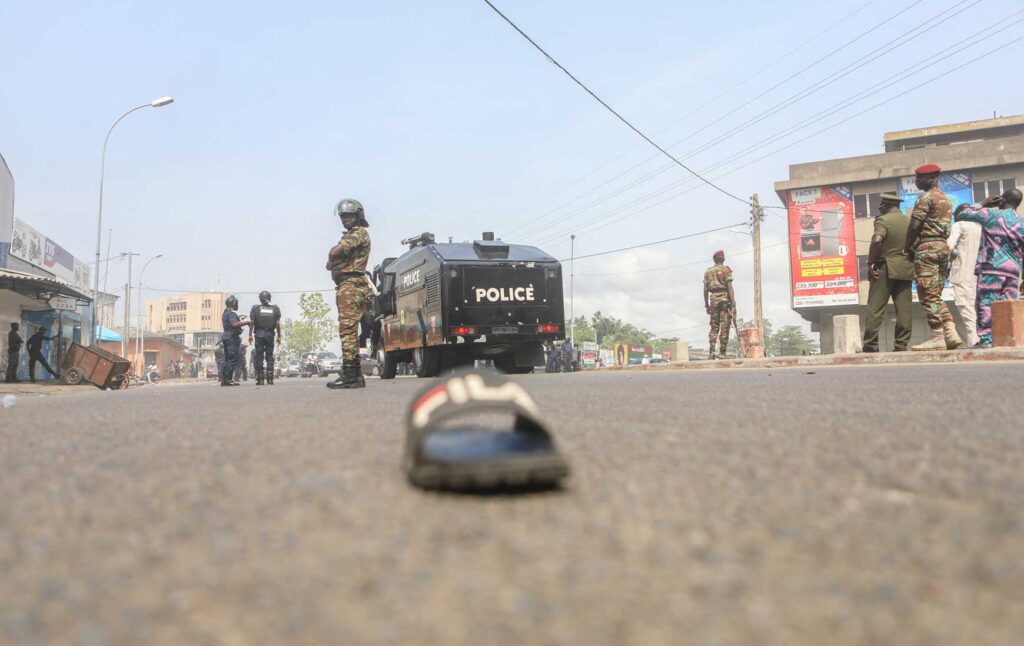
Karkare said the best way to fight corruption was, first, to look at the different kinds of corruption that exist in a country and try to address the practices which are the most egregious. “To effectively fight corruption, the government needs to know ‘what’ they are fighting. What do we mean by corruption? Which forms do we find the most objectionable? Therefore, it is important to know what the government’s own priorities are because not everything can be resolved in one go.
“Once this initial exercise is done, there is the question of ‘how’. There is a need to take into account the interests and incentives of actors in the areas where the government wants to address corruption.”
But a ruling party member interviewed by Africa in Fact brushed aside Karkare and Elias’s comments, insisting “Talon’s anti-corruption campaign has been a success. He has succeeded where previous leaders failed. Boni Yayi (the former president) let everyone do as they pleased. As a result, many people, especially those allied with or working for government and state-owned institutions, enriched themselves at the expense of the people.
“Now, look where we are as a country, extreme poverty, crumbling infrastructure, massive tax evasion, these are the scourges that Talon has been addressing in the past eight years and it is working. I’m not saying that corruption is dead and buried in Benin but it has been broken at least by half and dealt a serious blow.”
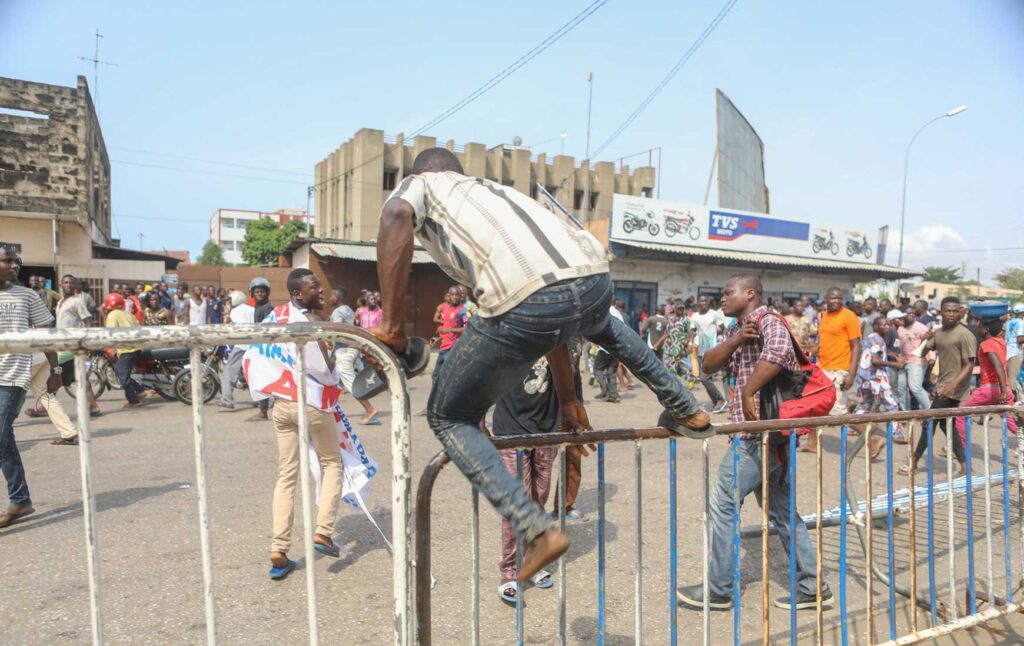
Another member of Talon’s party, who also preferred not to be named, claimed the millionaire leader had intended to deal with corruption once he became president. “And he has been doing just that by tightening the screws and closing all the taps from which free and illicit money used to flow. Many fled, others are in jail or suspended, and the war on corruption goes on, so everyone is now afraid to steal and be taken to the CRIET.”
But Elias is sceptical, pointing to supporting evidence from the justice ministry that showed that only 50 people were convicted for corruption between 2018 – the year CRIET was established – and 2023, compared to 133 for the same offences between 2012 and 2017. “You be the judge,” he said.
An opposition supporter told Africa in Fact that Talon’s anti-corruption campaign was one-sided and politically motivated. “In my view, it is merely a witch-hunt campaign. Talon only targets people who belong to the other camp, meaning the opposition, and leaves those who are close to him and support his regime. CRIET is merely a platform created to hunt down those who oppose his dictatorial policies. He is a millionaire. Tell me where and how he got all that money?”
While some people say they are satisfied with Talon’s anti-corruption drive, others are disgruntled, claiming the tap-tightening reforms have brought suffering and pain. One of these is the tender middleman, PDG, mentioned earlier in this article, who yearns for Yayi’s return as president. “I wish Papa Bonheur (Dad Happiness) could return to power, such a generous father figure who understood the suffering of his people by giving them a little space to breathe, very different from the likes of Talon, a stingy millionaire who only cares about himself.”
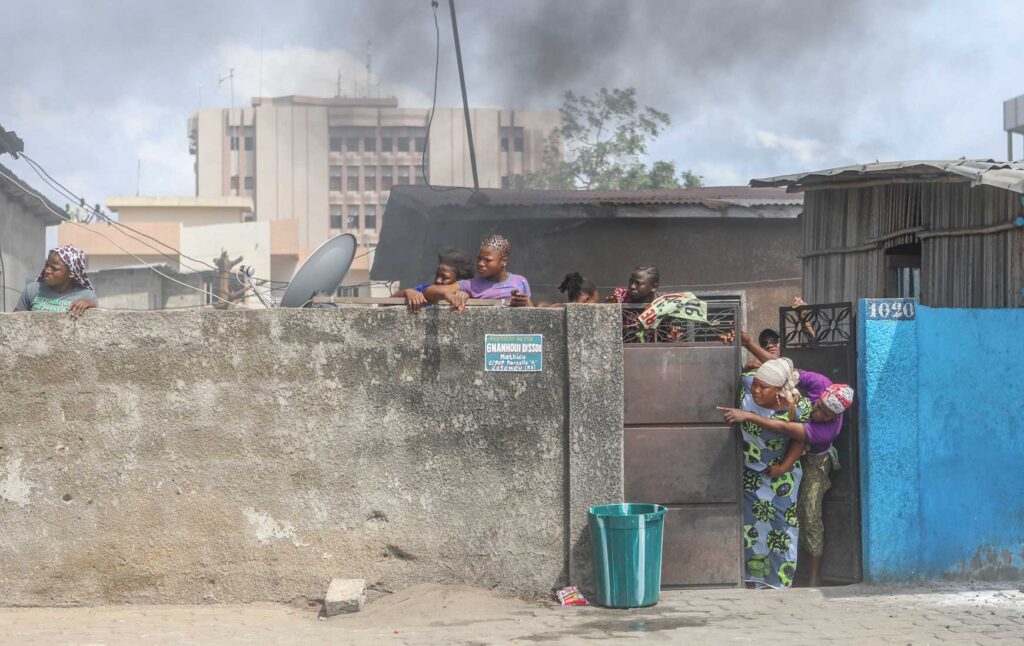
As to why corruption in Benin refuses to die despite the government’s efforts, ECDPM’s Karkare commented that “Policy changes always create winners and losers, and it is important that they are rightly identified, collaborated with, or dealt with to minimise opposition to reforms with a view to succeeding in eradicating corruption.”
Asked why people often complain and blame the government when corruption reaches alarming proportions but become frustrated when the same government takes bold steps to fight it, Karkare replied: “Citizens often underestimate what the overall effect of any reform is [in this case of anti-corruption]. Secondly, sometimes even desirable reforms can have undesirable (and sometimes unintended) consequences and impose hardships. This is why there [needs to be] a balance between the desirable outcome of a reform and its political feasibility.”
But Elias reiterated that corruption was dangerous and had to be eradicated. “It deprives the state of much-needed resources to carry out development programmes,” he said. “It distorts normal competition, creates harm to poor and vulnerable populations, and slows down economic development. It exacerbates inequalities and increases costs, and reduces access to basic services and reduces private investment to the detriment of markets.”

Kinshasa-born Issa Sikiti da Silva is an award-winning freelance journalist. Winner of the SADC Media 2010 Awards in the print category, he has travelled extensively across the African continent. He lived in South Africa for 18 years, where he worked for 10 years as a journalist before leaving for West Africa, and later to East Africa, to work as a foreign correspondent. He is currently based in Nairobi, Kenya.


